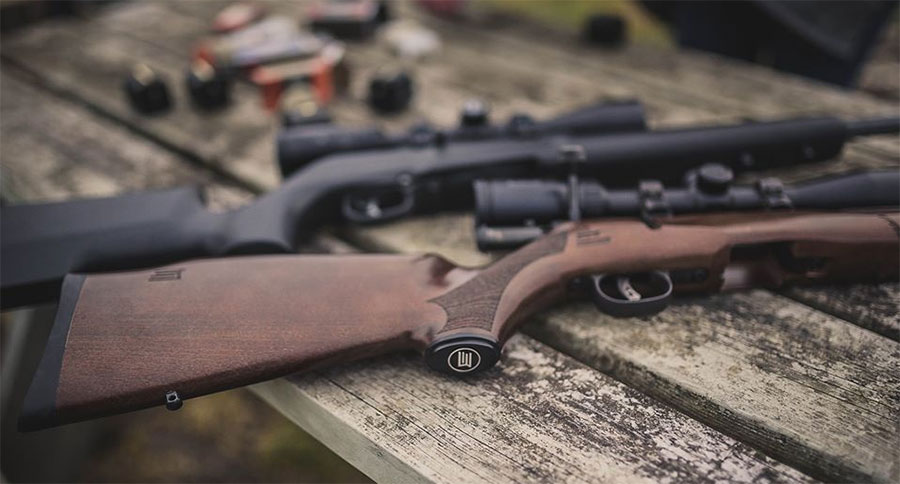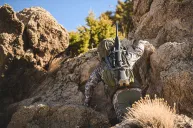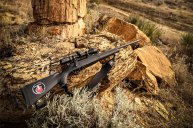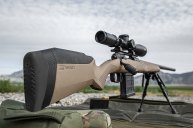Proper rifle cleaning has been a hot topic among outdoorsmen for a long, long time.
Every outdoorsmen and marksman out there should learn how to clean a rifle before ever using one. Whether it's from your dad, your commanding officer, or a YouTube video, it's something you've got to learn. Like anything else in life, we learn our method, repeat it often, and it becomes tough to stray away from it.
For the sake of avoiding one argument and diving into another, we won't bother trying to tell you how to clean your guns.
Because while there are countless approaches out there, debate arises when you consider how often you should clean a rifle.
We recently received a selection of Savage Arms guns to test and review, and this discussion seemed to keep surfacing. We teamed up with the famed gun company to devise some general rules to follow that will keep your firearms in tip-top shape for a really long time.
Remember, there's a reason military members believe cleaning a rifle should be an integral part of every gun owner's routine. After all, those firearms have to last as long as possible, under the most extreme circumstances.
If you want to dumb it down, the answer to when and how often you should clean your guns is easy to remember: Clean them every time you touch them. This practice applies to all gun owners.
As outdoorsmen, we typically aren't working in the field every day to keep the country free like our brave military, but that doesn't excuse us from following the practices. Here, with help from Savage, are the general ideas to follow.
The Ins and Outs
If you want your rifle to last, you have to make sure it's wiped down and lubricated each time it goes into storage.
Similarly, every time it's taken from its case, it has a chance to catch dust or moisture. Don't think handling, manipulating, or moving a gun isn't reason enough to clean it. Especially if it hasn't been fired, a gun is easy to put away and forget about, without having taken the necessary cleaning steps each time.
While cleaning a rifle, specifically inspect the areas of your rifle that have repeated contact during operation, such as scope mounts, trigger(s), and the bolt handle. All those smaller metal parts take on moisture from your hands, which are the leading culprits when it comes to rust.
When you're hunting in the rain or other harsh weather conditions, it's wise to be a little more vigilant. Because your firearm is exposed to the elements for long periods of time, you should wipe down the metal surfaces every time you return to camp, keeping moisture and dust particles off your rifle the best you can.
Additionally, it never hurts to keep a gun sock handy when packing your gun to take it into the elements. Some people even tape the tip of their barrels to help avoid constant cleaning when they know conditions might be rough.
In generalities, you should be cleaning your gun after: every shooting session, every trip to the range, and every six months if it sits unused.
Be sure to conclude the cleaning within a couple days of shooting, because waiting too long can lead to problems.
What Not to Do
Never skip a cleaning. If you don't clean your gun every time you return home from the field, sorry, but you're doing it wrong.
Most of us figure that if we didn't get the gun dirty or didn't even fire it, there's no reason to clean it. What's the point of breaking down and cleaning your firearm if you never pulled the trigger?
The short answer is longevity. Every cleaning matters, so clean your rifle every time it comes home from the field.
Next, don't leave a gun propped up against a wall. First of all, it isn't safe, as anyone would be able to point out. But also, moisture and dust, especially in a camp or cabin, comes in contact with that rifle, adding yet another chance for your gun to get dirty. Propped against a wall, it will travel down the barrel and into the tough-to-reach spots.
Always put your gun in a safe or away in a case where only you, as the responsible gun owner, have access to it.
Also, don't forget lubrication. If you don't lubricate the gun's metal and moving parts, the rifle will wear in certain areas at a faster rate. Make sure you're lubricating those high-touch areas every time you clean.
And finally, NEVER forget to take it out of its case after a trip, even if you cleaned it at your destination before leaving. Most shooters have experienced that heartbreaking moment that comes when you unzip a gun sleeve a week or two after a hunt, only to find their prized firearm riddled with rust. If the moisture that inevitably gets on your rifle has nowhere to go, it's going to wind up that way.
The end-all solution to all of these problems is cleaning your firearms as soon as you get home, putting them away safely and securely, and not touching them until it's time to use them again. If you live by these principles, your guns will last you a long, long time.
NEXT: SAVAGE 110 BA STEALTH: THE LONG-RANGE RIFLE OF YOUR DREAMS
WATCH




